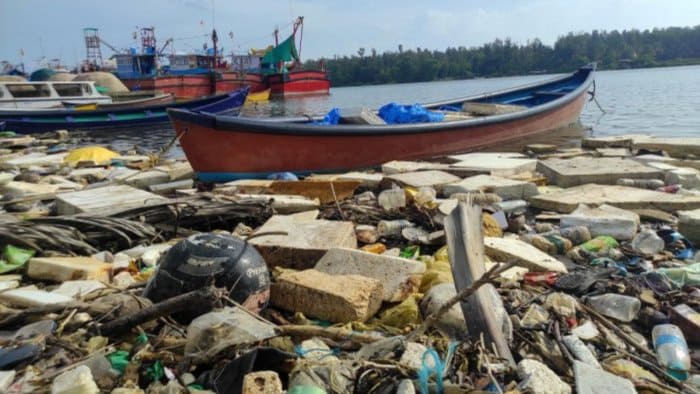
There will be more plastic in the oceans than there are fish by 2050

There will be more plastic in the oceans than there are fish by 2050, says Anupam Vikram Joshi, Founder and Managing Director of WAE Ltd, which offers a unique way to prioritise viable economic growth while staying true to sustainable development goals.
"India has a serious problem with plastic waste management that requires immediate attention. Only around 60 per cent of the nation’s daily production of plastic waste—more than 25,000 metric tons — is adequately collected and processed. Lowering individual plastic consumption can be extremely effective in preventing the environment’s massive buildup of plastic garbage,” said Joshi.
According to the United Nations Environment Programme (UNEP), 60 major Indian cities produce about 15,343 tonnes of trash each day that is discharged into the south Asian seas. The Central Pollution Control Board estimates that just 37 per cent of India’s yearly 55 million tonnes of municipal trash is treated.
Read | Committed to address plastic pollution: India at UNEA
“India has 7,517 km of coastline. It borders a 2.02 million square kilometre Exclusive Economic Zone (EEZ), which is divided among nine states. In the nine coastal states of India, 420 million people live.
About 330 million of these people reside on or within 150 kilometres of a coast. The nation’s coastline supports its economy, biodiversity, and biological diversity,” Joshi said.
“Thousands of tonnes of waste, including plastics, glass, metals, hygiene items, clothing and more, are thrown into it every year. However, nearly 60 per cent of all marine trash that enters the oceans is made up primarily of plastics. The marine trash catastrophe, which poses major challenges to India’s exceptionally rich marine biodiversity, is currently crippling the country,” he added.
More News
ESG Frameworks and Why They Matter: A Rating Provider’s Perspective
An in-depth overview of key global and regulatory ESG frameworks, explaining how...
UK Proposes Regulation of ESG Ratings to Strengthen Market Trust
The UK proposes formal regulation of ESG rating providers to address transparenc...
Double Materiality Assessment and its Significance
This blog explains the concept of Double Materiality Assessment and why it is be...
How Independent Reviews Enhance Investor Confidence in ESG Debt Markets
SEBI’s 2025 ESG debt framework marks a new phase for India’s sustainable fin...
GHG Protocol x ISO: A New Partnership to Align Global Carbon Accounting
A major shift in corporate climate reporting is underway as the GHG Protocol and...


